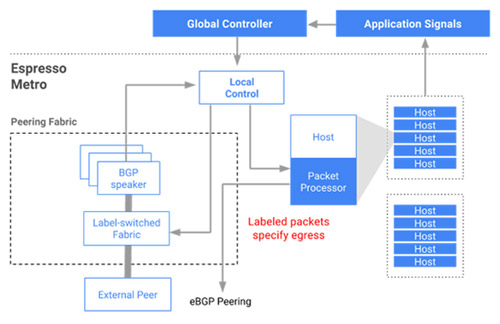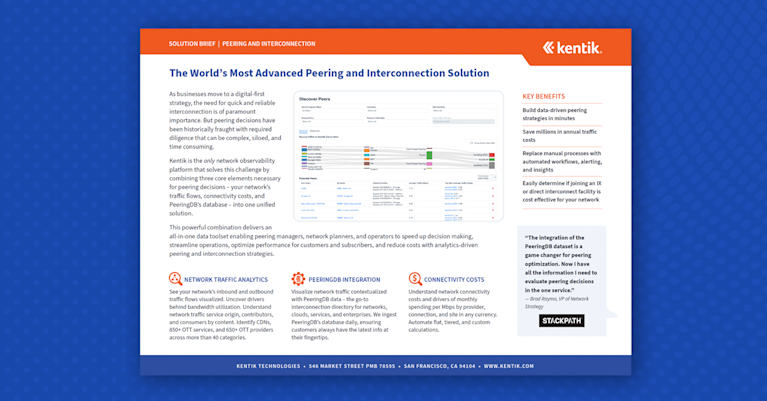What You Should Know About the Emerging Network Analytics Landscape
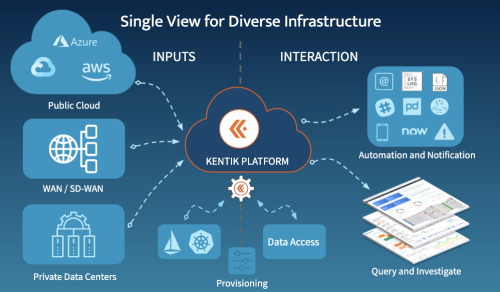
Summary
Kentik’s Jim Meehan and Crystal Li report on what they learned from speaking with enterprise network professionals at Cisco Live 2019, and what those attendees expect from a truly modern network analytics solution.
An insider’s look at Cisco Live 2019 and some surprising gaps in the latest network analytics solutions.
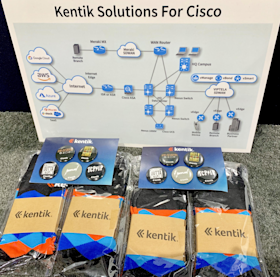
Engaging with industry peers who are looking for network monitoring solutions gave us the opportunity to receive honest opinions, learn about frustrations and challenges people are facing, and of course, presented the chance to show off Kentik’s differentiators via live demos.
As part of our post-mortem, this post looks back at what we heard from conference attendees we spoke with. It also sheds light on how networking professionals think about the requirements for a modern network monitoring and analytics solution.
Observations from the Expo Floor
It can take a few days to visit all of the booths on Cisco’s sprawling “World of Solutions” expo floor. Among all the solution categories, networking management, monitoring, and analytics may be the most-packed category. Cisco on its own has multiple solutions here (including DNA Center, ACI APIC, vManage/vEdge for SDWAN, and more)… not to mention solutions from all of the other vendors. The crowdedness in this sector is a testament to the high demand among enterprises for tools to monitor and analyze their network infrastructures.
One trend we noticed is that every vendor out there claims that their product utilizes networking data, and that data-driven approaches are employed across the board. Supported data sources, therefore, are key to understanding each vendor’s focus and capabilities. Monitoring products consume flows, events, logs, metrics, packets, configurations, transaction details, and many other data resources, in different combinations, with varying degrees of success at achieving traffic-centric observability.
With so much data utilized to achieve visibility, it’s not a surprise that AI/ML was a top buzzword at many booths. Although the AI/ML specifics are still quite hazy for most of the vendors, it’s clear that they hope to leverage AI technologies such as deep learning to learn and make better decisions with complex traffic data.

Enterprise Infrastructure Challenges
Before we discuss which characteristics customers were looking for in networking monitoring tools at Cisco Live, let’s first summarize the recent enterprise infrastructure challenges that are driving these requirements:
- Increasingly complicated network infrastructures: Primarily caused by the emergence of the cloud, networks are increasing in complexity. We see many enterprises beginning their cloud journey with SaaS adoption, followed by deploying applications in public cloud infrastructure (starting with the “lift and shift” model), then reconstructing entire applications using modern, cloud-native approaches. Each step into the cloud adds another layer of complexity when it comes to managing the networks that power everything running on top.
- One networking team and many application teams: There is usually only a single networking team that’s responsible for all of the enterprise networking that powers enterprise applications—which are often developed by multiple, distributed application teams. With services today being digitized at exponential speed, enterprises need to run a lot of different types of applications on their own. This reality increases the workload of the network team, who must ensure every path is problem-free to maintain service availability.
- The team structure is outdated and slow to collaborate: The team structure of many enterprises is no longer suitable for complex issue triage processes. Each team has its own unique set of tools, and communication is often inefficient, significantly slowing down the network troubleshooting processwhen issues occur.
Frustrated NetOps Teams
Cisco Live is a great place to listen to the stories of enterprise networking professionals.
One director-level network architect stopped by our booth and mentioned his team manages the entire data center, campus, WAN and cloud network in the organization. He told us his team uses siloed tools for different use cases and in distinct parts of the network. But as a leader, he is more interested in understanding the big picture of the overall health of his company’s networking infrastructure.
Another NetOps lead relayed a very similar situation: Her organization has many specialized and disjoint tools for different areas, and lacks a single monitoring tool that can provide end-to-end visibility.
We also had inquiries about integration and automation capabilities from multiple solution architects, who were hoping to find a way to have all the tools somehow work together and support existing workflows.
The “End-to-End” Requirement
Network professionals may not be able to describe the specifics of every requirement, but they clearly understand what they don’t want. That is: disjoint legacy monitoring tools that frustrate them in their day-to-day work and fail to deal with new, complex infrastructure.
“End-to-end” is a phrase that these network professionals used to describe what they are looking for. In a broad sense, end-to-end could mean a solution to monitor every aspect of the network. But to be more realistic, it more likely refers to a balance between decent coverage from a single product, with tight integration into the entire ecosystem.
Kentik for Enterprise Network Visibility Challenges
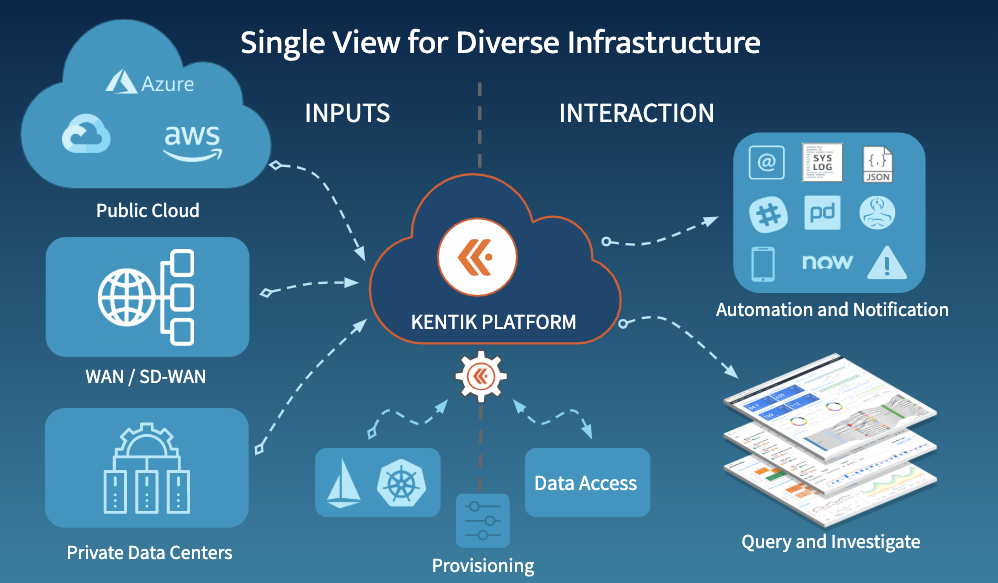
If you are looking for a modern network analytics platform that can:
- Provide a 360-degree unified view of your diverse infrastructure
- Intelligently detect anomalies based on historical as well as real-time traffic data
- Accelerate your troubleshooting process, powered by ML
- Integrate quickly and easily with your existing workflows and tools, enabled by rich APIs
- And provide a genuinely end-to-end network monitoring and analytics solution…
… we encourage you to request a demo or start a free trial today. We’d be happy to show you how Kentik addresses all of the above-mentioned concerns and more.
